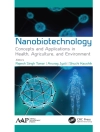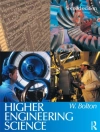Nanoscale materials and structures have attracted great attention in recent years because of their unique physical and chemical properties and potential use in energy transport and conversion. This book puts the subject into context by first looking at current synthesis methods for nanomaterials, from the bottom-up and top-down methods, followed by enhanced energy conversion efficiency at the nanoscale and then specific applications e.g. photovoltaic cells and nanogenerators. This authoritative and comprehensive book will be of interest to both the existing scientific community in this field, as well as for new people who wish to enter it.
İçerik tablosu
Top-Down Fabrications of Nanostructures; Growth of Semiconductor Nanowires; Fabrication Techniques of Graphene and Carbon Nanotube Nanstructures; Nanophotonic Light Trapping Theory for Photovoltaic Cells; Zn O Nanowires: Nano Current Generator; Microstructure and Thermoelectric Properties of Nanocomposites; Thermal and Thermoelectric Properties of Nano Materials; Thermal Energy Transport Measurement in Low-Dimensional Nanostructures; Micro- and Nanoscale Thermoelectric and Thermiomic Devices; Novel Electronic Devices Powered by Energy Harvesters
Yazar hakkında
Dr. Zhang joined Peking University as a full professor in 2010. He received his B. Sci and Ph D in physics from Tsinghua University in 1998 and 2002, respectively. From 2002 to 2004 he was a SMF research fellow at National University of Singapore (NUS) and from 2005 to 2006 at Stanford University. He joined the Institute of Microelectronics, A*STAR, Singapore, as a senior research engineer in 2006 and Department of Electronics, Peking University in 2010 as a full professor. His research is focused on the energy transfer and harvesting in nanostructured materials. He is a world recognized expert in the electrical and thermal properties simulation of nano materials. He developed several novel approaches for molecular dynamic, and quantum chemistry simulations. He has authored or co-authored more than 70 publications in the peer-reviewed international journals and conferences, including 5 in Nano letters and Nano Today, and 1 invited review article in Nano Scale. He has delivered several invited talks in the international conferences. His research has gained him a number of international recognition and media highlight. He was awarded with an Outstanding Ph.D. thesis Award in Tsinghua University (2002), Singapore Millennium Foundation Fellowship (2002-2004), and IME Excellence Award (2008). Dr. Zhang’s research achievements are also matched with his competency in teaching. In 2010, his Ph D student received the Chinese Government Award for Outstanding Students Studying Abroad.












